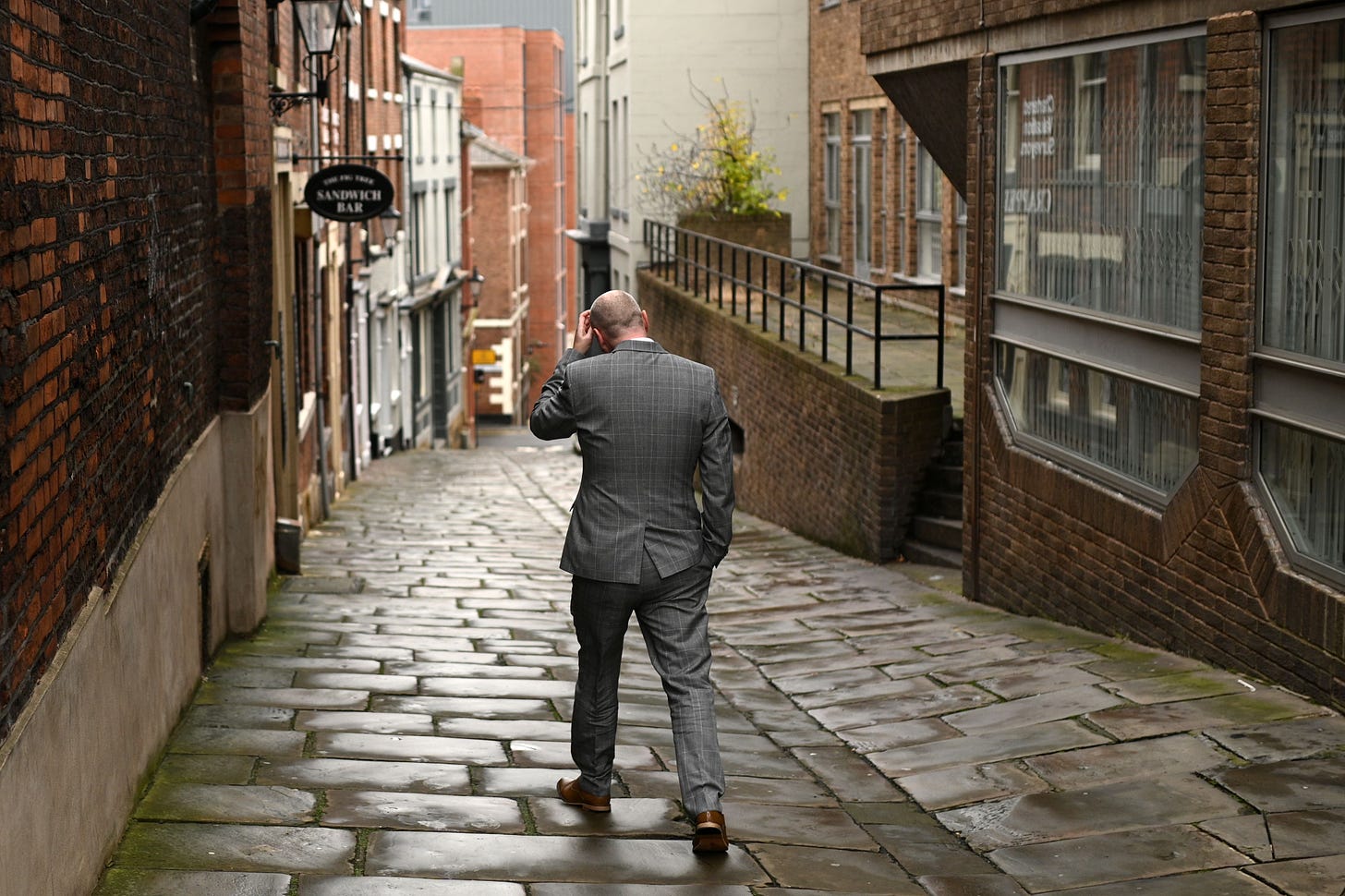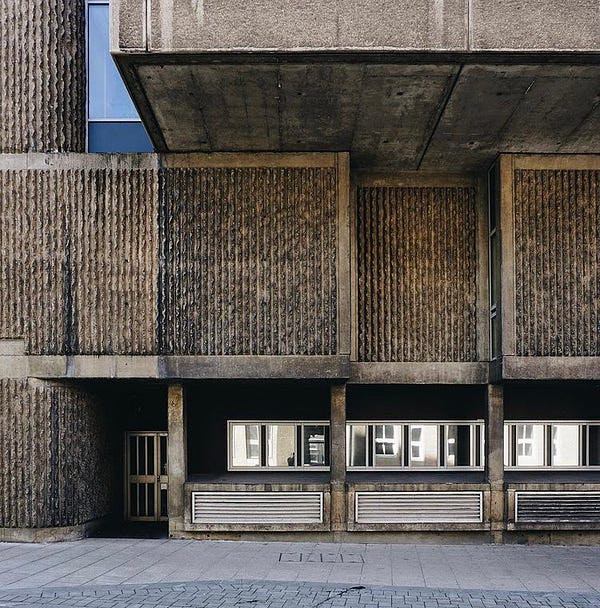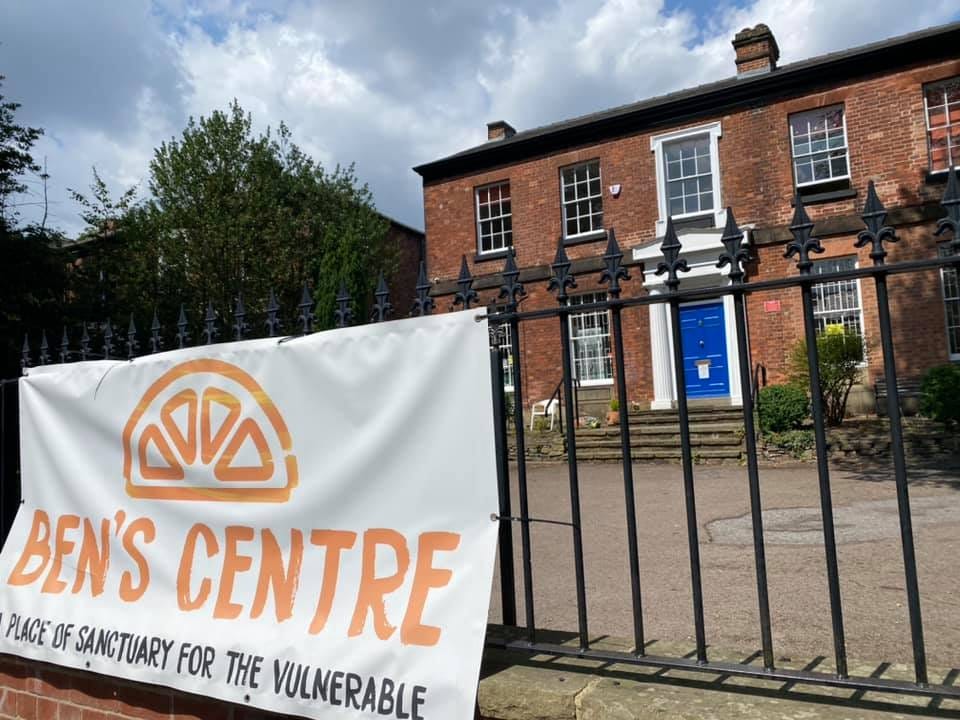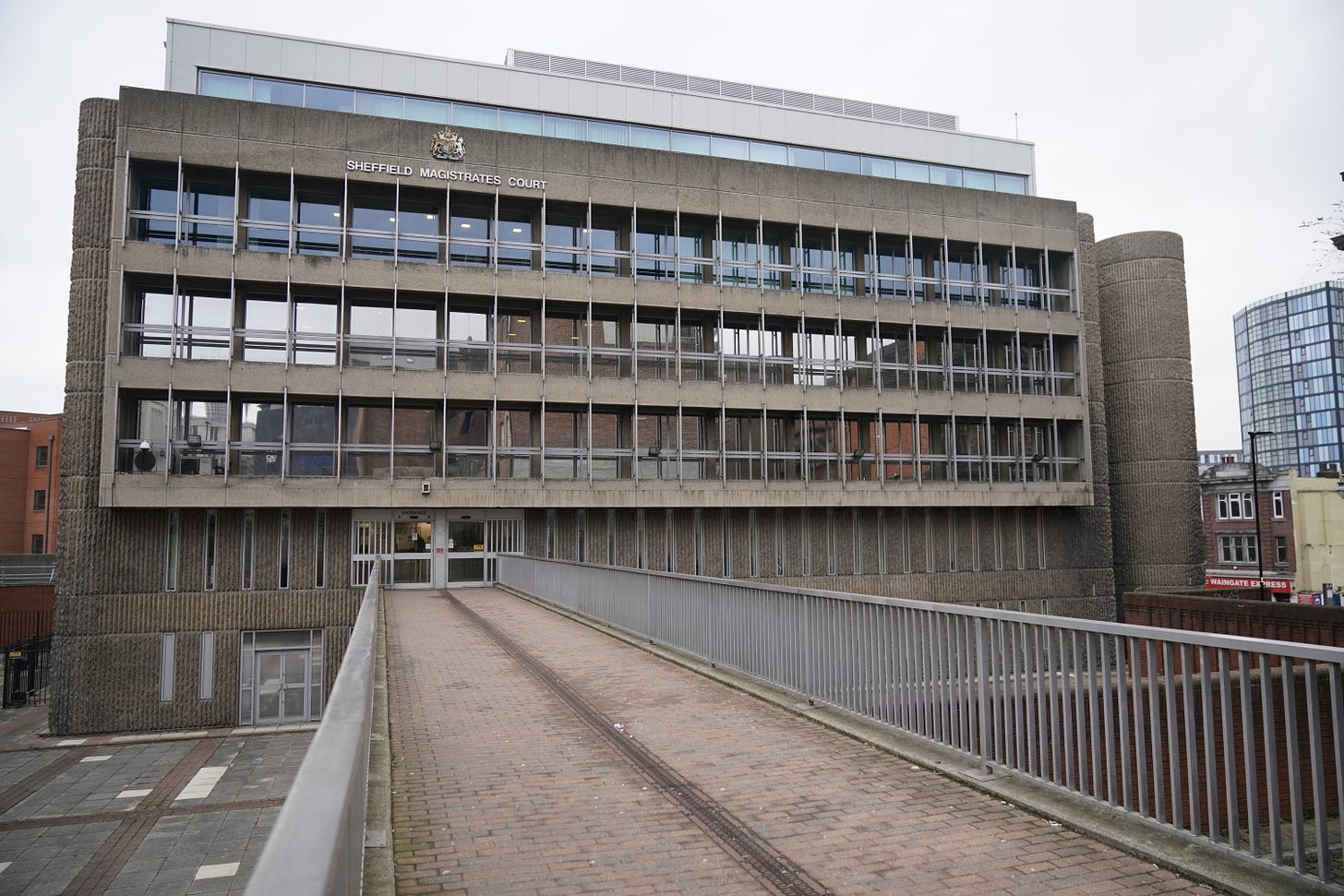By Dan Hayes
The last time I visited Sheffield Magistrates’ Court, I could barely move for the crowds. It was a horrible thing that had brought us all there — me and the others from local outlets, alongside TV, radio and print reporters from most of the big national newspapers — the first court appearance of Sarah Barrass and Brandon Machin, an incestuous couple accused of murdering two of their six children in Shiregreen. Dozens of shell-shocked friends and family wept in the public gallery while ushers and clerks seemed overwhelmed by the media whirlwind that had descended on their courtroom.
Fast forward two years — I haven’t returned in the interim — and it’s hard to believe the deserted building is the same court. When I tell the security guards I’m a journalist, they seem surprised. Local newspaper cutbacks mean journalists don’t tend to report on magistrates’ court proceedings anymore, while the Covid-19 pandemic has taken a further toll on attendance. For months courts weren't able to sit at all, creating a backlog in the system that is currently 453,000 cases long. More recently, some magistrates’ courts in the UK have been forced to close after key staff fell victim to the so-called “pingdemic.”
The security staff helpfully tip me off that “my best bet” are the remand cases in court two. Most of these are petty offences: threatening behaviour, minor assaults, harassment, driving offences. Magistrates’ courts have to send cases to the Crown Court if the defendant could get a custodial sentence of more than six months for one offence or more than 12 months for two or more. One serious knife crime offence from Sheffield is sent to the Crown Court as is a Rotherham ram raid, but most are dealt with by Deputy District Judge Michael Hopkinson.

Patterns emerge. One is of homelessness, rough sleeping and begging. Of the ten cases dealt with during the morning’s proceedings, four involve people who either live or have recently been living on the streets. Connected with this are issues linked to drug and alcohol dependency and mental health.
The cases illustrate the depressing revolving door that often exists between life on the streets and prison: one leads to the other and it’s challenging to break the cycle. Ministry of Justice figures show 11,435 people were released from prison into homelessness in 2018-2019, and 4,742 homeless people started community sentences in the same period. Perhaps this goes some way to explain why so many rough sleepers have spent time in prison — studies suggest that it’s as many as a third. Most disturbingly, anecdotal evidence exists that homeless people sometimes reoffend in order to put a roof over their head, even if it’s only for a few nights.
The first three cases in the remand court on the morning of Friday, July 23 all included someone who either was or had recently been homeless. Alan Walker, aged 55, from Barnsley was first in the dock. Way back in July 2019, Walker got lost in a part of his hometown he wasn't familiar with and climbed on top of a wheelie bin to try to get his bearings. After the bin’s owners challenged him, he threatened to burn down their summer house.
Another recently homeless man, Ian Kerr, aged 48, from Sheffield, had been living on the streets for the last 12 years, although he is currently housed at an address on the Wybourn estate. Kerr had been arrested earlier in July when he attacked the manager of the Waitrose store on Ecclesall Road. When the manager asked him to leave after suspecting he was drunk, he assaulted him and then bit a security guard who tried to intervene.
David Pickford’s case was perhaps the most tragic. The court heard 45-year-old Pickford had not been in trouble with the law for 24 years prior to this appearance, but a recent family breakdown left him destitute. He stole alcohol from Tesco Extra on Drummond Street in Rotherham before making his way into the store’s warehouse and drinking it. He was later found by shop staff, passed out on a self-made bed on the floor.
And Clare Whitty, aged 40, appeared after failing to comply with a public space protection order in Barnsley. The order has been in place since 2016 to prevent anti-social behaviour including aggressive or persistent begging. As well as begging in Barnsley, Whitty is a common sight on the streets of Sheffield, where she often begs in the city centre.


Hearing mitigation for defendants such as these can be distressing. Walker’s lawyer spoke of the “considerable length of time” his client had spent on the streets, as well as his anger at the way he was treated by society. Kerr’s Asperger’s syndrome and personality disorder had, according to his solicitor, led to a lifetime of drug abuse which he had been trying in vain to kick. And Whitty’s lawyer described in detail both her “chaotic lifestyle” and fractious relationship with her father.
A quick search online revealed previous offences for both Kerr and Whitty going back several years. A piece in The Star from 2007 stated Kerr was to be the subject of an anti-social behaviour order banning him from Chesterfield town centre. At the time he was already serving 24 weeks in prison for possession of a blade; common assault; two thefts from a shop and an attempted theft from a car. More recently, on October 5, 2020, Clare Whitty was detained after being found in possession of a class A drug. She was also in breach of her bail and a drug assessment order.
As you would expect, the lawyers tried everything to keep their clients out of prison. Kerr’s solicitor Yvonne Wragg revealed she had represented her client “multiple times over the years” and urged the judge not to impose a custodial sentence. “Give him RAR (rehabilitation activity requirements), give him a curfew,” she pleaded. “Ban him from going into any Waitrose store, ban him from going down Ecclesall Road at all. He was complying with probation before the latest offence.”

In the end she didn’t need to worry. Kerr was handed three suspended sentences, one for each of the assaults and another for a separate public order offence. In fact, all of the former or current rough sleepers appearing before the court that morning would walk free. Alan Walker was handed a suspended sentence while David Pickford received a conditional discharge. Clare Whitty was given a criminal behaviour order.
Stern warnings about their future behaviour came down from Judge Hopkinson, but was anyone actually listening? It was cursory justice, on a production line designed to process cases as quickly as possible. As well as their sentences, most of the defendants were asked to pay victim surcharges or court costs. These seemed to be issued more in hope than any expectation that they might be paid.
Criminal defence barrister Joanna Hardy-Susskind recently tweeted that we should talk about what goes on in our magistrates’ courts far more than we do. They are where most crime is dealt with — “thousands and thousands of people a year” — and yet receive a fraction of the attention given to Crown Courts and jury trials. Hardy-Susskind argued the focus on case management at the lower courts has produced a kind of “factory justice” obsessed with systems and processes rather than outcomes.
What the morning’s four most vulnerable defendants were leaving court to was another matter. Over the last 10 years, the services that homeless people rely on in Sheffield have been cut back drastically. Daryl Bishop from Ben’s Centre, a charity which supports rough sleepers in Sheffield, told The Star in 2020 that services like theirs were adept at coping with crisis, but that the long-term mental health support that many of those on the streets desperately need was still lacking.
The probation service has also suffered deep cuts and was privatised in 2013 (a decision that was reversed last year). But rehabilitated offender and former drug addict Mark Johnson, who now runs criminal justice charity User Voice, believes the damage caused in those years — in increased suicide and self-harm and more reoffending — will take longer to repair. Writing in the Guardian last year, he said his positive experience of the probation service simply wouldn’t happen now:
No officer would have the time or budget to give a client that sort of attention. And she’d be lucky to find an addiction centre. No, today the officers themselves are the last remaining support structure for vulnerable people because services that offenders need, such as addiction, mental health and homelessness, have been cut to the bone.

Leaving the court it was difficult to shake the feeling everyone was just going through the motions. “Your behaviour does you no credit,” Judge Hopkinson had told Alan Walker as he rose to be sentenced: as if the mere words could make someone who had spent half his life on the streets suddenly see the light.
Agencies who might be able to help these defendants escape the revolving door of incarceration and homelessness — housing, drug and alcohol and mental health services — aren’t routinely involved in the criminal justice system. Until they are, it's hard to see this self-destructive cycle being broken.





An excellent, unsensationalist article about the daily tribulations of homeless people who fall into the purview of the local justice system, without having many resources to help them amend their lives in a way that might help them avoid such difficulties in future.
Best piece of local journalism I’ve read in years. Keep it up!